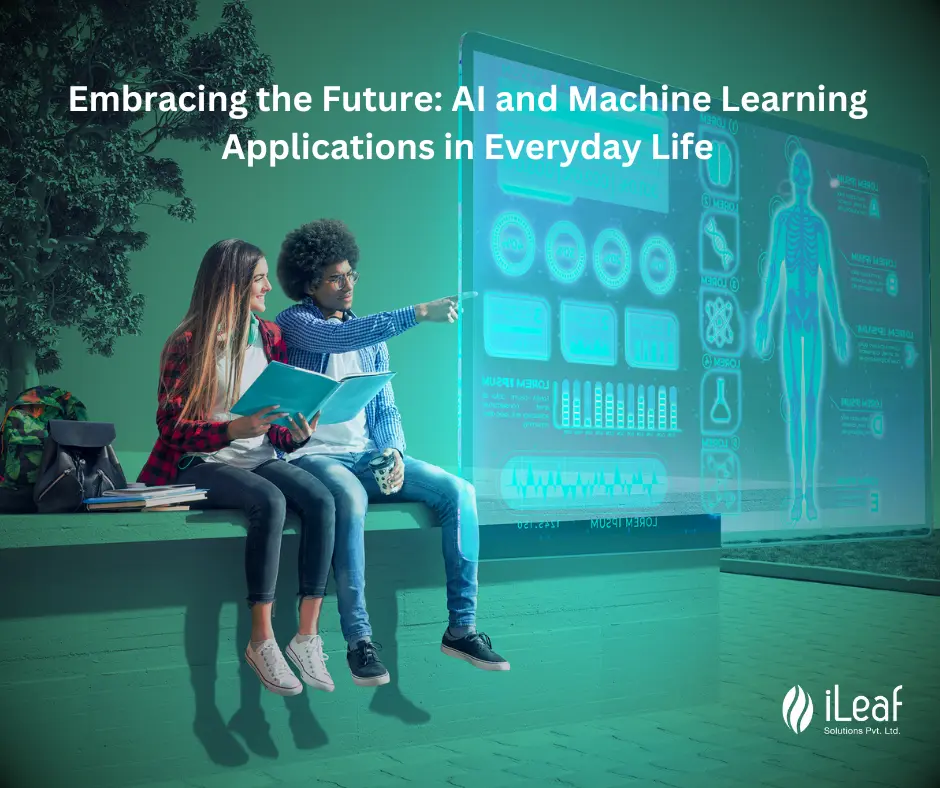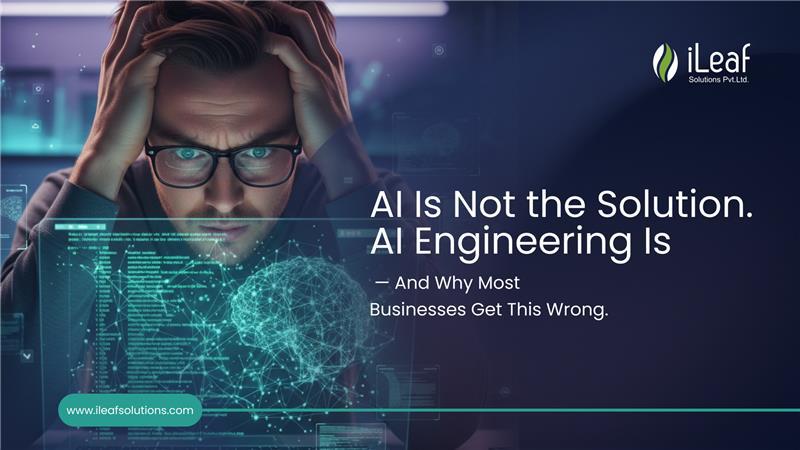Embracing the Future. AI and Machine Learning Applications in Everyday Life

Artificial Intelligence (AI) and Machine Learning (ML) have rapidly become integral parts of our daily lives, revolutionizing the way we interact with technology and the world around us. From personalized recommendations on streaming platforms to smart home devices, AI and ML applications are becoming increasingly prevalent. In this blog post, we will explore the diverse applications of AI and ML that are shaping our everyday experiences.
1. Personalized Recommendations
One of the most noticeable applications of AI and ML is in the form of personalized recommendations. Streaming platforms like Netflix and Spotify use complex algorithms that analyze users' viewing and listening habits. Based on this analysis, they recommend movies, shows, or songs that align with individual preferences. This not only enhances user satisfaction but also drives user engagement and retention.
2. Smart Assistants and Home Automation
AI-driven smart assistants like Amazon's Alexa, Apple's Siri, Google Assistant, and others have transformed the way we interact with our homes. These AI-powered devices can control smart home devices, set reminders, answer questions, and even engage in casual conversations. They continually improve by learning from user interactions, making them more efficient and personalized.
3. Healthcare and Medical Diagnoses
AI and ML are making significant strides in the healthcare sector. They are used for medical image analysis, predicting disease outcomes, drug discovery, and personalized medicine. AI can analyze medical images like X-rays and MRIs to assist in diagnosing conditions accurately and quickly, enabling timely and appropriate treatments.
4. E-commerce and Online Shopping
E-commerce platforms use AI to enhance the shopping experience. Artificial intelligence algorithms assess user actions and preferences to offer tailored suggestions for products or services. Additionally, chatbots powered by AI assist customers with their inquiries, improving customer service and engagement.
5. Finance and Fraud Detection
In the finance sector, AI and ML are instrumental in fraud detection and prevention. Advanced algorithms analyze transactions, user behavior, and other data points to detect unusual patterns that might indicate fraudulent activities. This helps in securing financial transactions and protecting users from potential fraud.
6. Transportation and Autonomous Vehicles
The development of autonomous vehicles is a prime example of AI and ML applications in the transportation sector. Machine learning algorithms enable these vehicles to perceive their surroundings, make decisions in real-time, and navigate safely. In the future, autonomous vehicles have the potential to revolutionize how we commute, making transportation safer and more efficient.
7. Education and Personalized Learning
AI is being integrated into education to provide personalized learning experiences for students. Adaptive learning platforms use AI to understand students' learning patterns and tailor educational materials accordingly. This ensures that students receive content and guidance that suits their individual learning styles and abilities.
8. Natural Language Processing (NLP) in Communication
NLP, a field of AI, is enhancing communication in various ways. Chatbots and virtual assistants use NLP to engage in natural, human-like conversations with users. Additionally, language translation apps and tools utilize NLP to bridge language barriers, promoting global communication and understanding.
9. Environmental Sustainability
AI and ML are helping solve environmental issues. They play a role in climate modeling, resource optimization, and energy management. AI algorithms can analyze vast amounts of data to identify patterns and provide insights for sustainable practices and conservation efforts.
10. Gaming and Entertainment
AI is an integral part of modern gaming, enhancing the gaming experience. AI algorithms create more challenging opponents, generate dynamic environments, and adapt gameplay based on the player's behavior, ensuring a more engaging and immersive gaming experience.
Conclusion
In conclusion, AI and ML have become an integral part of our lives, transforming how we interact with technology and the world. The applications mentioned here are just the tip of the iceberg, and as these technologies continue to advance, we can expect even more profound impacts on our daily lives. Embracing and understanding these technologies will be key to maximizing the benefits they bring to our rapidly evolving world.














